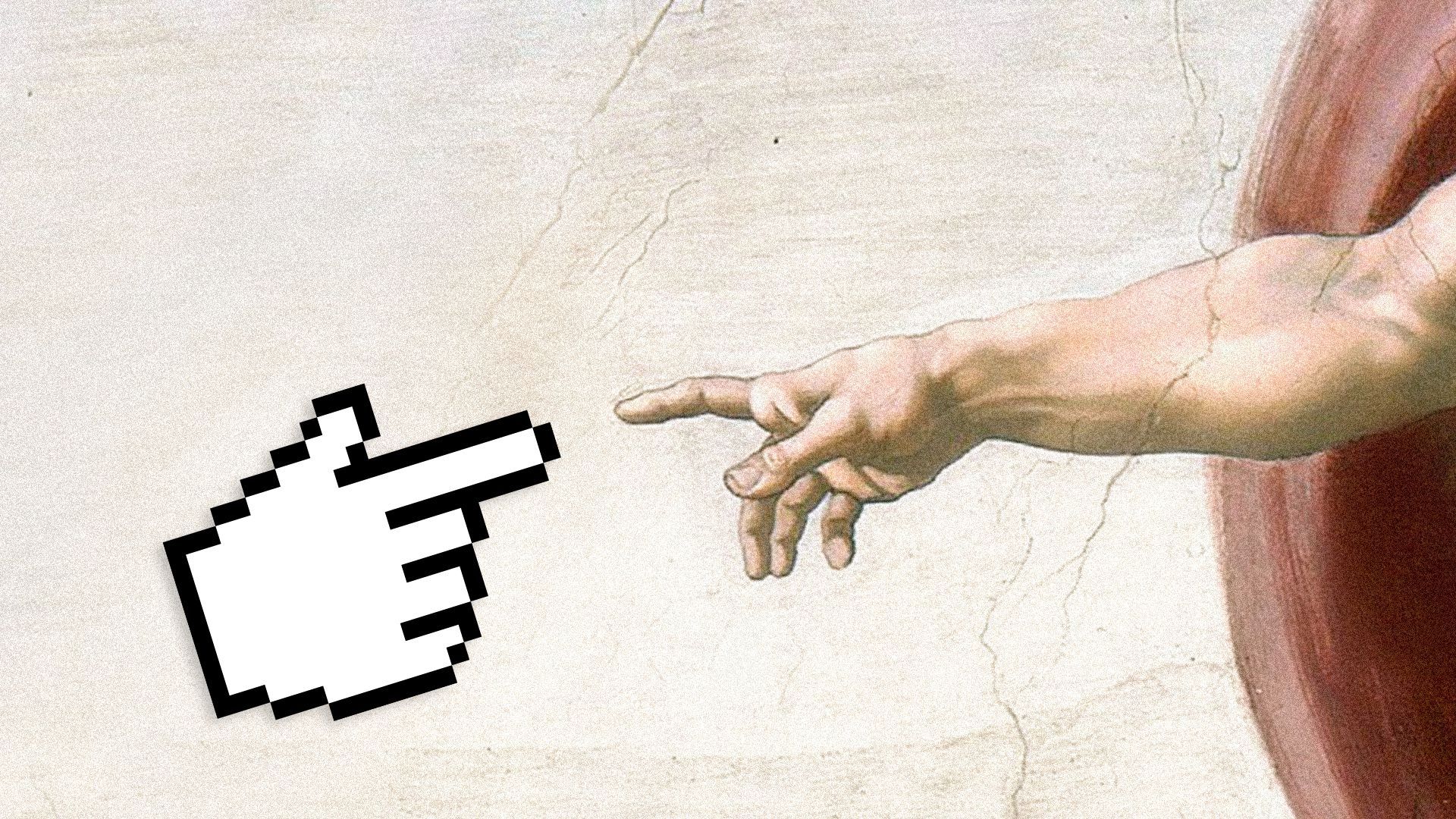Cyber AI firm helps Vatican digitize its library archives
Add Axios as your preferred source to
see more of our stories on Google.

Illustration: Aïda Amer/Axios
A cybersecurity firm is working with the Vatican to defend its priceless collection of digitized writings from hacking efforts.
Why it matters: Digitizing library archives can provide an invaluable backup should the originals be lost or destroyed, but they're also vulnerable to cyberattacks. Without stout defenses, digital libraries can be looted or even vandalized.
What's happening: The more than 500-year-old Vatican Library, which holds among other historical treasures the oldest surviving copy of the Bible, has been in the process of digitizing over 80,000 of its rarest documents.
- The digital archive "allows more people to explore the world’s history firsthand," says Manlio Miceli, chief information officer for the Vatican Library.
- But the archive also presents a tempting target to hackers, which is why the Library announced last month that it would begin working with the cyber AI company Darktrace to defend its digital treasures.
How it works: Justin Fier, the director for cyber intelligence and analysis at Darktrace, says the company has been defending the library against about 100 hacking attempts per month.
- As part of its cyberdefense efforts, Darktrace is employing what it calls an "enterprise immune system," which develops an ongoing understanding of normal activity within the Vatican Library's digital operations, so it can quickly detect when something is off.
- "What we can do is tell you what's usual and what's unusual," says Fier. "And 90% of the time, the unusual turns out to be either intentionally or unintentionally malicious."
The bottom line: As a former Catholic altar server, I just want to know whether hacking the Pope counts as a venial or a mortal sin.
